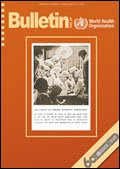
The World Health Organization (WHO) has just published the August issue of the WHO Bulletin.
This month's issue is dedicated to ethics and public health, including a contribution on the ethics of drug donations from Christina P Pinheiro, Department of Hygiene and Epidemiology, University of Porto Medical School, Porto, Portugal.
Pinheiro notes the lack of international regulation on drug donation procedures and the opportunity therefore for exploitation. While the WHO has published interagency guidelines for drug donation, these are merely guidelines, not international regulations.
The large number of agencies involved in drug donations leads to undue complexity and inefficiency in the process, including unfortunate waste. For instance, in a 2006 study of Pharmaciens Sans Frontieres Comite International, it was noted that all major donations of pharmaceuticals do not meet recipients' needs.
Pinheiro criticises the origins of donations for their inappropriateness - including industry surplus, free samples and returns to pharmacies for disposal. Further problems are raised by the state in which drugs are delivered, including expired drugs and labelling in languages unknown by the local health workers. And drugs which are unusable become the burden of the recipient country, now responsible for their disposal as hazardous waste. In many ways, "free" donations can become quite costly to the recipient countries, greatly undermining the value of this procedure in many cases.
The ethical issues are clear, with an acceptance that something is better than nothing, rather than demanding the best medicines. As Pinheiro states, there is "a disturbing division between the rights and worth of different populations."

No comments:
Post a Comment